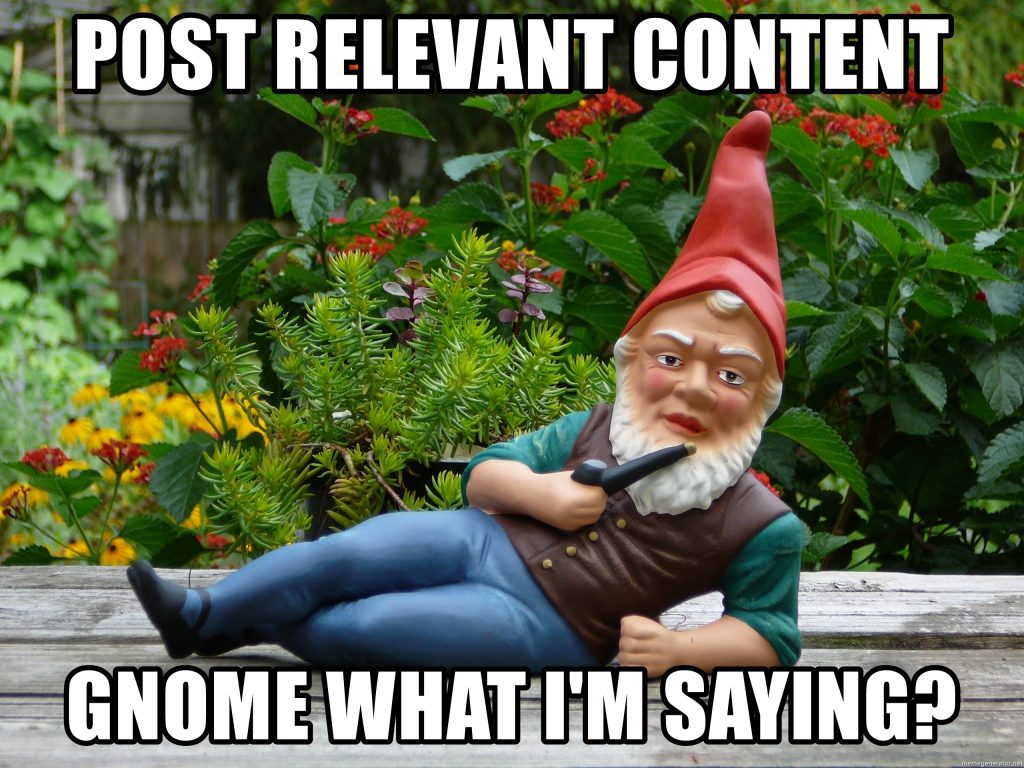The Real Reason People Don’t Visit Your Website
You’ve designed an attractive site. You’ve even included some keywords and basic SEO. You’ve got images and a logo. You’ve even got a blog. Your page is responsive, and loads fairly quickly. So, why don’t people visit your website? It’s because of SEO and search engine ranking, right? Don’t be so quick to put all your money down on the table for SEO services. That’s not the issue.
What do you mean? If people aren’t visiting, they must not be able to find your website, right?
 Wrong. Search engine optimization is less about ranking first for keywords and more about ranking first for relevant content featuring your keywords. Wait, what? That’s right – it’s more about how you use your keywords, the content, the markup – the grammar – than it is about keyword density. Stop for a minute and think: are you an authority on what you do? Are you an expert?
Wrong. Search engine optimization is less about ranking first for keywords and more about ranking first for relevant content featuring your keywords. Wait, what? That’s right – it’s more about how you use your keywords, the content, the markup – the grammar – than it is about keyword density. Stop for a minute and think: are you an authority on what you do? Are you an expert?
Some folks would immediately take offense to those two questions and respond back with “Well, of course, I am. I wouldn’t be doing this if I wasn’t.” Or would you? I think the more likely scenario is that you aren’t quite sure if you’re an expert or not – but it’s not that simple, is it? It’s whether people see you as an expert. That’s the challenge.
Showing that you’re an expert in a particular area doesn’t mean being arrogant or boastful – it’s about being confident in your area and communicating that confidence to your customers. That will in turn give them confidence and trust in you, leading to sales and the like. When you position yourself as an authority, big things happen.
That brings me to domain authority.
What’s domain authority?
Domain authority is a search engine ranking score developed by Moz that predicts how well a website will rank on search engine result pages. Essentially, it determines whether or not your domain is an authority for the keywords you’re trying to target using algorithms and a scoring metrics.
How and what does it score you on? A slew of things – however, the most important of them is proper markup, good site structure and links, and of course, good, well-written relevant content that not only uses your keywords, it shows you’re an authority about them.
Could you have good domain authority and not be an expert, probably. However, once people get to your site, they will quickly realize that you’re not as good as your ranking would lead them to believe. People can smell amateurs and insincerity a mile away. You need to not only make sure your website has domain authority but that you’re the expert (or at least an expert) on the topic that brought them to your site.
That’s why people don’t visit my site?
Not entirely, but it certainly plays a role in a lack in traffic. Think about it though. Are you likely to visit – or return to – a site that looks and sounds like it was written by an amateur? Sure, you can have great SEO with Adwords, social media postings and the like, but if your site has little to offer it terms of relevant content and professionalism, you’re not likely to retain visitors – or customers – with that kind of presence.
Your site really needs to be a destination, not an afterthought. Think about it (yes, lots of thinking in this post). Think about the sites you visit frequently and why you visit them. Is it because there’s something there that holds your attention? Is there something that you’re waiting for? What makes you come back for more?
In addition to relevant content, you need to have content that YOUR target audience wants to read. Knowing your target audience is important – too important to just try throwing spaghetti at the wall and seeing if it sticks. (Hint: It doesn’t. It just makes a mess. Every parent with a two-year old knows this). Release the relevant content that your target audience WANTS and feel free to give a little away as an incentive to keep them coming back for more.
Text is great but…
I’m not going to go into all the cliché adages that tell you how much better a picture is than text, however, I will say that make sure you use relevant photography – not clipart. Clipart is unprofessional and amateurish. Make sure you’re using high-res photography that you bought or that you took yourself. This adds credibility, which is super important in getting anyone to trust you and your website, and shows that you have attention to detail – the little things.
Sprinkle in some video where appropriate – there’s no need to show adorable video about kittens watching the Smurfs (yes, it exists) unless your site is about kittens who happen to like watching videos of the Smurfs. And only share video that’s high quality, like your pictures, and has relevant content. Sharing video for the purpose of sharing video is not helpful to your SEO or your visitors.
So, that’s all I need to do to get people to visit my website?
No. That’s not all..
You see, the notion about having a website back when the internet was in its infancy was that if you have a website people will naturally just find it online. Those days are gone. We are lightyears ahead of that now and it’s simply not enough to just have a website with information on it about your business, organization or kittens. Yes, kittens. If you want people to find you, you need to treat your website like a living breathing thing. Feed it good content, much the way you would a growing child. Maintain it the way you would your own home.
That’s great but…
But what? Your website is your 24/7 money-maker. It’s there when you’re not. You’re probably saying, “It costs money to maintain a website”. Yes, it does. It costs money to maintain a car too, but you do it anyway. Just do it. You’ll thank me later.
Let’s recap, since we’ve gone down a bit of a rabbit hole. You need to worry more about your actual content than keywords. Use them, but make sure your relevant content is well-written and marked up properly. Position yourself as an expert in your field of business – boost your domain authority by including high quality content that shows your knowledge and experience. Make your site a destination – someplace that people will return to daily or weekly to see the new content you’ve posted. Mix it up – use high quality pictures, video, sound (include a podcast if that works for you), etc. Give something away as an incentive to keep people coming back. Keep the site maintained and updated. If something isn’t working, change it. Inaction is just as bad as the wrong action.
If people aren’t coming to your site, don’t fret. Take a good hard look (invite a trusted friend or colleague who would give you honest feedback on what’s working and not working on your site) and make the changes the suggest. And, have patience. People will eventually find your site and visit and if you’ve done the things I specified above, they should be coming back for more in no time.
What do you do to keep visitors coming to your site? What kinds of relevant content works best for you (and ultimately your visitors)? Let me know!








